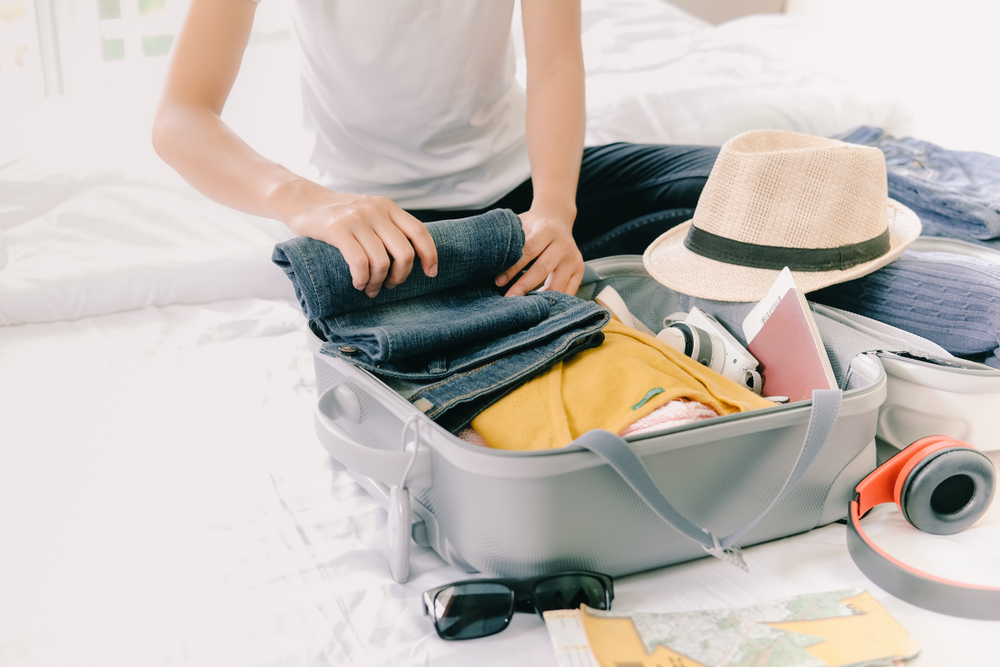To avoid your money-related woes turning you into a Grinch, take some time to manage your financial concerns
The holidays are often billed as the happiest time of the year, but between the gifts, the end-of-year tips, the decadent feasts, the frequent parties, and the travel, they can also be among the costliest. All of this to say, if you’re feeling a little financially stressed out amid all of the merriment, it’s not surprising. You’re also far from alone — according to a Bankrate survey conducted ahead of the 2023 holiday season, “54% of holiday shoppers say they expect to feel some financial burden in the upcoming holiday season.”
To avoid your money-related woes turning you into a Grinch, however, it’s important to take some time from the festivities to address and manage your financial stress.
1. Get clear on your ‘holiday values’
Before you get too wrapped up in the holidays, “take a minute to set some guardrails for your finances” and “determine your holiday values,” suggested Ally. For instance, you may determine that your priority for the holiday season is spending quality time with your family, giving back to your community, or simply decompressing after a long year.
Once you know what you want your holiday season to be all about, you can “use that foundation to build your budget and determine where you want to spend your money” — and also “avoid getting caught up in the moment once you’re in the throes of the holiday spirit,” advised Ally.
2. Be communicative
While you may feel concerned that talking about your financial stress will be a downer on your holiday season, it’s actually a great opportunity to be honest with your loved ones and connect. This can include keeping an open line of communication with your partner to make sure you’re aligned on your budget, and also being realistic with loved ones about your constraints.
“If the holidays give you financial stress and anxiety, talk with your loved ones about an alternative format to holiday spending and gift-giving this year that takes the pressure off of everyone,” Ilian Georgiev, CEO and co-founder of personal finance app Charlie, told Bankrate. According to Georgiev, some ideas worth tossing out include working to “reduce spending by setting spending limits” or even to “skip the gift exchange altogether and focus on celebrating with your loved ones.”
3. Think outside the box for gifts and decor
As Nerdwallet noted, “buying new holiday decor every year can be expensive, especially if you go all out on ornaments and lights,” so you might consider “reusing or repurposing existing decorations” instead. You could even get crafty by making homemade ornaments, adorning an existing houseplant with lights, or DIY-ing a wreath.
You can apply this principle to gifts as well. For instance, “giving secondhand gifts is a cost-effective option,” highlighted Nerdwallet, or you might consider gifting experiences, something homemade, or even just offering up your time, according to U.S. News & World Report. You can extend that creativity to wrapping your gifts, too.
4. Keep your emotions and your financial decisions separate
There’s nothing wrong with feeling your feelings, but when it comes to your finances, allowing your emotions to intervene can lead to some decisions you’ll later regret. This includes saying no to guilt. Because as Nerdwallet pointed out, “while it is nice to give people gifts, it’s not a necessity, especially if it’s overwhelming or you can’t afford it.”
Especially if you know you’re already stressed out, this might be a good time to stay off social media, too. As Ally underscored, “social media is rife with potential stressors,” from a stream of “can’t-miss deals” to “the constant danger of comparing your holiday plans to what everyone on your feed is posting.” Remember that even if emotional spending feels good in the moment, it’s likely only going to compound your financial stress later.
5. Plan to balance things out with a future spending pause
If you’ve already done some financial damage this holiday season, remember that there’s always next year. “To help you recover from large holiday expenses, consider minimizing spending a few months after the holidays,” Nerdwallet recommended.
You can also use your spending this year to better plan for next year. Because as Nerdwallet pointed out, “spending more during the holidays isn’t a terrible thing if you financially plan for it.”



